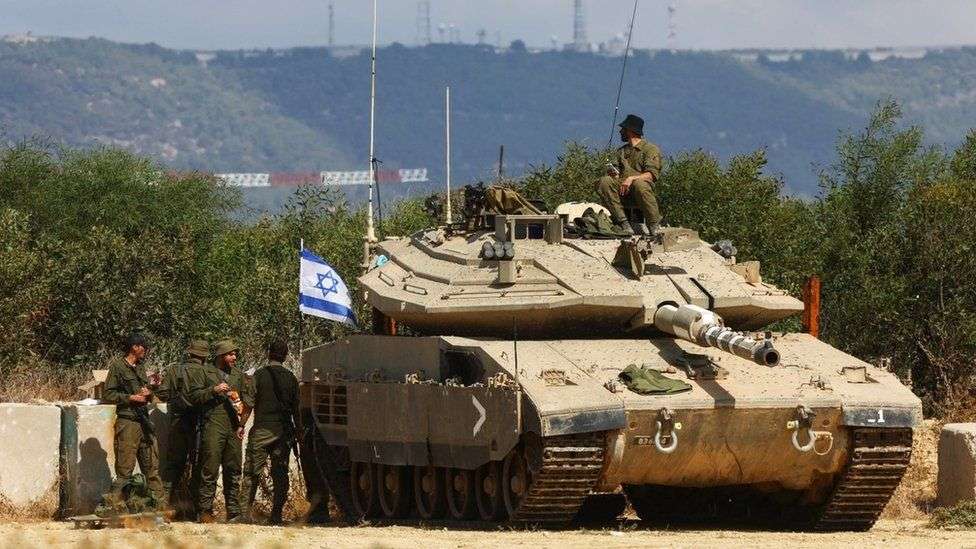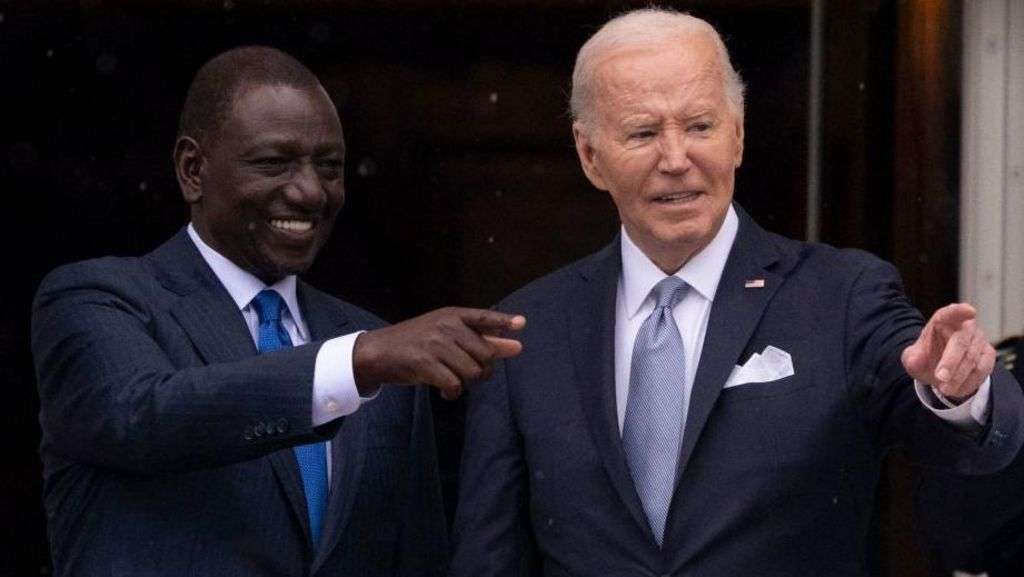Israel's military is evacuating 28 villages near the northern border with Lebanon because of escalating hostilities with Hezbollah militants.
An Israeli civilian and a soldier were killed on Sunday, when anti-tank missiles fired from Lebanon hit one of the villages and a military post.
The military said it struck Hezbollah military sites in response.
It also accused the group's backer, Iran, of ordering attacks in an effort to distract Israel from the Gaza war.
Iran meanwhile warned Israel of the risk of a regional conflict if it continued attacking the Palestinian territory in retaliation for the deadly assault by the militant group Hamas earlier this month.
Hezbollah is Lebanon's most powerful military force and has long-range rockets at its disposal that could strike deep into Israeli territory. It fought a month-long war with Israel in 2006.
The IDF announced on Monday morning that it was implementing an emergency plan to evacuate all civilians living up to 2km (1.2 miles) from the Lebanese border and put them up in state-funded guest houses. However, several villages near the frontier are already three-quarters empty or more.
Residents told the OceanNewsUK that families had not waited for the official order, packed up their things and taken their children south to safety.
In many cases, the only people left in the villages now are soldiers and members of local security teams who stayed behind to help them.
The communities are so close to the border that you can see the fortified fence built by Israel along it. In some of them, you can also see the Hezbollah observation posts on the other side.
At one point on Sunday, there was intense fighting in several different locations along the frontier, as the IDF and Hezbollah exchanged fire.
Israel reported its first civilian death from a Hezbollah strike in the current violence. A man in his 40s was killed in an anti-tank missile attack on the border village of Shtula.
Later, an Israeli soldier, Lt Amitai Granot, was killed in another missile attack on a military post, Israeli media reported.
In a separate exchange, a rocket hit the headquarters of the UN peacekeeping force in Lebanon, Unifil, in the city of Naqoura. No-one was injured.
The IDF said it carried out strikes on Sunday and overnight that targeted Hezbollah military infrastructure.
It also reported that nine rockets were fired from Lebanon into Israeli territory, five of which were intercepted, and that it struck the launch sites in response.
Last Monday, three Israeli soldiers were killed in a confrontation with militants from Palestinian Islamic Jihad who had crossed over the border from Lebanon. Later that day, at least three Hezbollah militants were killed as the IDF attacked sites in Lebanon in response to mortar fire.
And on Friday, a Reuters news agency cameraman, Issam Abdallah, was killed by shellfire while reporting near the Lebanese village of Alma al-Shaab. The IDF said it was investigating Lebanon's claim that Israeli troops fired the shell.
The IDF has deployed tens of thousands of additional soldiers along the border in the past week, but Israeli Defence Minister Yoav Gallant told reporters on Sunday that it had "no interest in a war in the north".
"If Hezbollah chooses the path of war, it will pay a very heavy price. Very heavy. But if it restrains itself, we will respect that and keep the situation as it is," he added.
Iranian Foreign Minister Hossein Amir-Abdollahian meanwhile said his country had conveyed a message to Israel through it sallies that "if they do not cease their atrocities in Gaza, Iran cannot simply remain an observer".
He also warned that if the "scope of the war" expanded the United States would suffer "significant damages".
The US said it was sending a second aircraft carrier strike group to the eastern Mediterranean Sea on Sunday as part of "deter hostile actions against Israel or any efforts toward widening this war following Hamas's attack".








